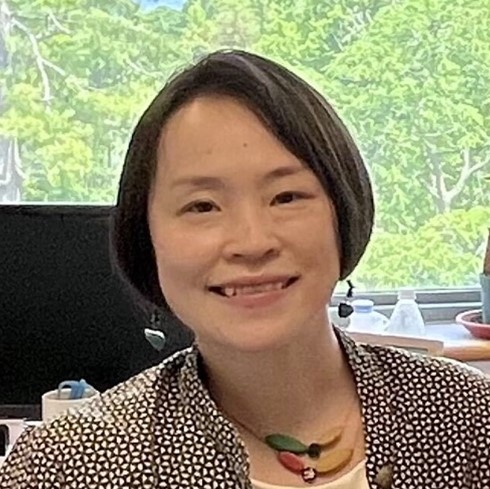
Abstract:
RTA typically heats up materials up to ~1200 °C at 100 °C/sec, a classic and common processing method of semiconductors, but far less explored for polymers. Our group has pioneered polymer-assisted RTA in fabricating porous carbon materials by “Freeze-Burn” and defect-healing of 2D materials by “Nanobandage.” For porous carbon materials production, there has been an opportunity to bridge the gap between template and template-free methods where structural control and throughput are often trade-offs. We addressed this challenge by utilizing matrix polymer blends that undergo phase separation during heating (freeze) while polymer degrades (burn), termed “Freeze-Burn.” The Freeze-burn demonstrated successful templating of a wide range of carbon nanoparticles (ACS Applied Polymer Materials 2022) and direct pyrolysis of hetero-doped porous carbon materials with an excellent performance in microcpacitance and wound healing (manuscript under revision). Our polymer-assisted RTA also has advanced microelectronics of 2D materials by developing a time and energy-efficient method to heal unavoidable defects in 2D materials. Using graphene as a model system, we showed that nitrogen-rich polymer thin films can be used as “Nanobandage,” working as a drive-in dopant without residue (Small 2023).
Bio: Reika Katsumata is an assistant professor in Polymer Science and Engineering Department at UMass Amherst. After obtaining her B.E. and M.E. degrees in Organic and Polymeric Materials at the Tokyo Institute of Technology, she earned Ph.D. degree in Chemical Engineering at the University of Texas at Austin, followed by her postdoctoral training at the University of California, Santa Barbara. Katsumata Group’s overarching research goal is to design extremely confined soft/hard interfaces, focusing on dynamics, wettability, and mechanics with a novel processing method of polymer-assisted rapid thermal annealing. She has been awarded the ACS petroleum research fund Doctoral New Investigator Grant, NSF CAREER Award, 3M Non-Tenure Faculty Award, Japan Science and Technology Agency PRESTO Award, AFOSR Young Investigator Award, and ACS PMSE Early Stage Investigator Award.